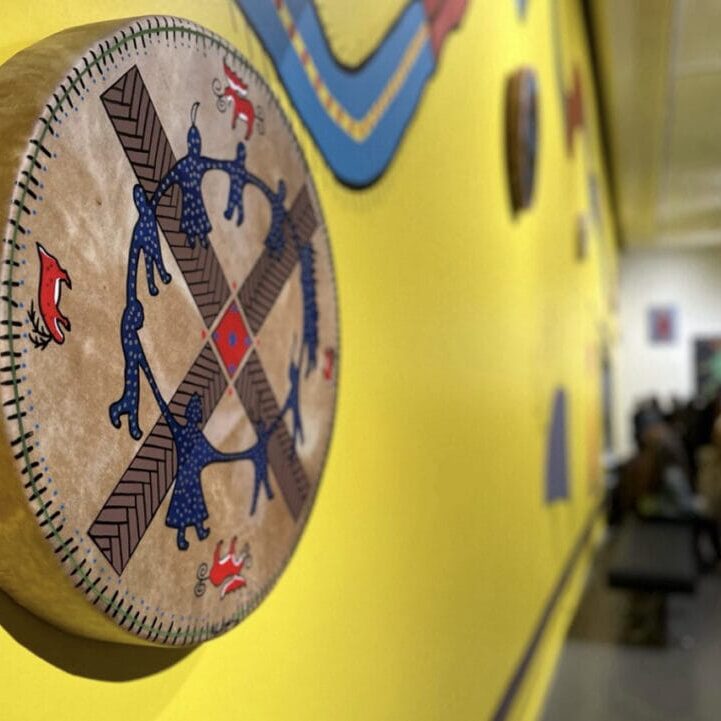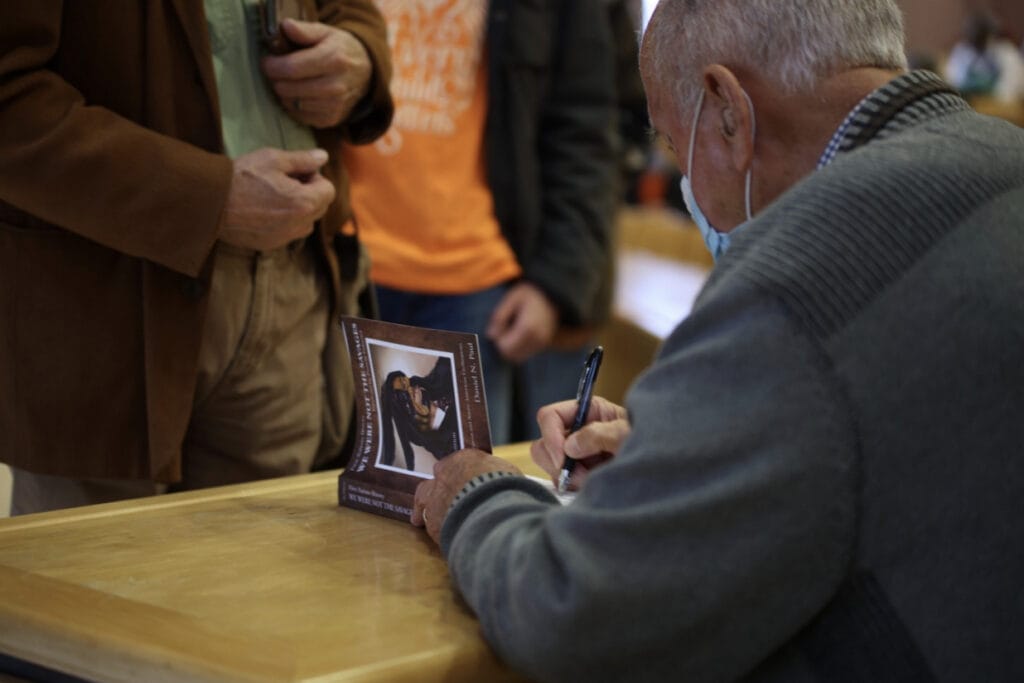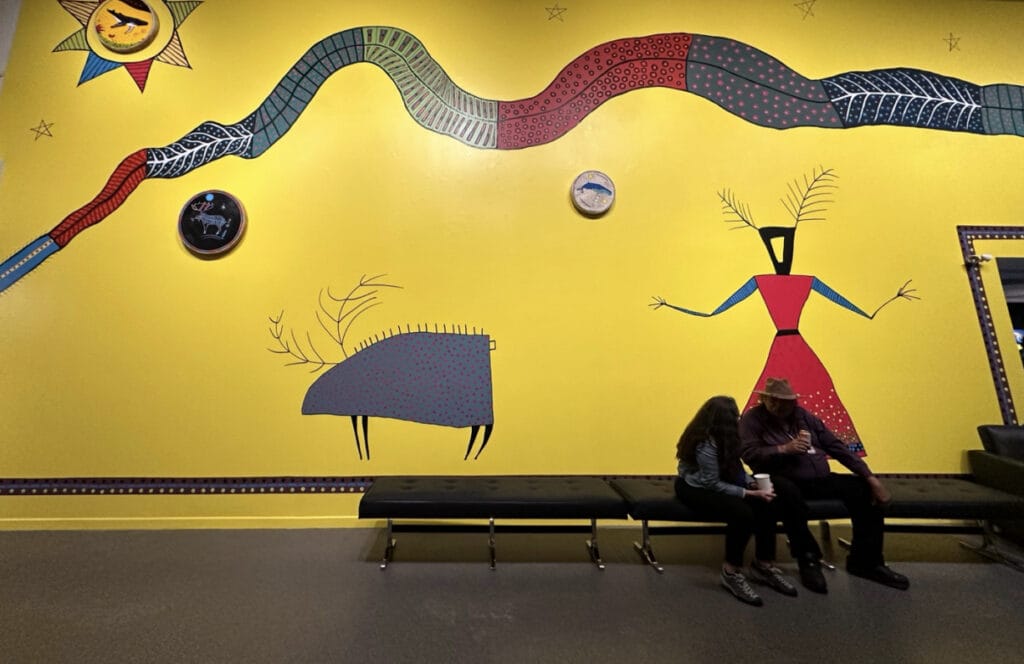
Five Mi’kmaw storytellers you need to know
Marking the fourth annual National Day for Truth and Reconciliation
This article begins with a land acknowledgement. It was written in Mi’kma’ki, the unceded ancestral home of the Mi’kmaq people. This territory is governed by the “Treaties of Peace and Friendship” which Mi’kmaq, Wəlastəkwiyik (Maliseet) and Passamaquoddy Peoples first signed with the British Crown in 1726. The treaties did not deal with surrender of lands and resources but in fact recognized Mi’kmaq and Wəlastəkwiyik (Maliseet) title and established the rules for what was to be an ongoing relationship between nations.
Sept. 30 will mark the fourth annual National Day for Truth and Reconciliation in Canada (or the northern part of what we may call Turtle Island), a day to recognize the tragic legacy of the residential schools and to honour the children who never returned home, the families who were left behind and the survivors of these institutions.
Despite this history, Mi’kmaw storytelling is affluent today! Reconciliation is hard, important, ongoing work, so I thought it would be a fruitful starting point to share the work of five influential Mi’kmaq storytellers to mark the occasion. Sadly, I’ve limited this list to five storytellers, but this does not mean you have to stop here.
Daniel N. Paul

When Daniel N. Paul first published We Were Not the Savages (1993), there was virtually no literature about Mi’kmaq people written by Mi’kmaq people. For many Mi’kmaq, this inaugural text finally gave us a voice and encapsulated the statement “nothing about us without us,” the embodiment of reconciliation in Canada.
We Were Not the Savages re-examines historical documents, detailing the relations between Mi’kmaq and European settlers, and ultimately asks us to question our ideas of civilization and savagery. In late 2022, just months before his death, Paul released the fourth edition of We Were Not the Savages. This final edition, like the editions that came before, demonstrated Paul’s lifetime commitment to his Mi’kmaw community and educating the public about Mi’kmaw history and culture.
Rita Joe
“So gently I offer my hand and ask,/Let me find my talk/So I can teach you about me.” (from I Lost My Talk)
Rita Joe was a survivor of the Shubenacadie Residential School, but her seven books, mostly poetry, are not about trauma but rather act as literary forms of liberation and reclamation. Not only has she won multiple awards, been appointed to the Order of Canada, been named to the Queen’s Privy council and been dubbed Poet Laureate of the Mi’kmaq people by The Globe and Mail, but her work (and beautiful personality) has always been about inspiring Indigenous youth to find their voices and celebrate their stories. I recommend checking out the Rita Joe Song Project, where groups of Indigenous youth respond to Joe’s poem I Lost My Talk.
Jeff Barnaby
Can horror cinema provide a space for reconciliation? Film director Jeff Barnaby certainly thought so, and I agree. Barnaby passed away at the young age of 46 in 2022, leaving us with only two full-length feature films, four short films and a music video, but each one of his works is overflowing with Mi’kmaw history and culture. Rhymes for Young Ghouls (2013), for instance, tackles intergenerational trauma and the legacy of residential schools, but it does so with all the power of resistance, in a way that is both heartbreaking and unfettered.
Alan Syliboy

Reconciliation is not just about addressing the dark history of residential schools, it is also about celebrating the traditions of Indigenous peoples more broadly. Inspired by the Mi’kmaw petroglyph tradition, Alan Syliboy is an artist and writer who has been an influential figure in Mi’kmaw art and literature. Syliboy has written some children’s literature, and he’s also in a band called Alan Syliboy and the Thundermakers. He keeps tradition and Mi’kmaw stories alive in so many ways. My personal favourite is his Daily Drum series.
Tiffany Morris
Tiffany Morris’s poetry collection Elegies of Rotting Stars (2022) and eco-horror novella “Green Fuse Burning” (2023) have won multiple awards, with her writing leaving us hungry for more. Morris’s work draws on speculative fiction to tackle contemporary issues, such as climate change, missing and murdered Indigenous women, girls and Two-Spirit peoples as well as intergenerational trauma. While her stories take on difficult topics, she does so in a manner that elevates and celebrates the Mi’kmaw language and ways of knowing and being.
I hope this short list acts as a springboard toward more meaningful conversations about reconciliation on this land. We’la’lioq!






